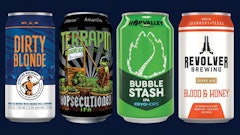

In October 2021, Canadian LP Canopy Growth Corporation announced its plan to acquire Colorado-based Wana Brands, a cannabis edibles brand, for $297.5 million cash upfront, though the deal hinges upon federal permissibility of cannabis. In the meantime, Wana, co-founded by CEO Nancy Whiteman, remains independent, though the company has continued to launch new products and has intentions to expand into new state markets. Cannabis Business Times caught up with Whiteman to get an update on what’s happened since.
Michelle Simakis: It has been more than six months since the Canopy Growth deal was announced. Though it won’t be final until federal cannabis legalization or “another triggering event,” have there been changes at the company relative to that agreement?
Nancy Whiteman: Yes and no. I’m still running the company. I don’t think things feel especially different here than they did. On the other hand, one of the reasons we signed the deal with Canopy is that we really saw them as a valuable partner to us. There are a number of things that we can do legally with them still as two separate companies where we can learn what it’s like to work with each other as partners before we’re working with each other as one entity.
MS: What does that look like?
NW: Those are the kinds of discussions we are having now. I can’t be super specific about that.
MS: You’ve noted in recent interviews that with federal legalization, distribution will look very different. What are the big opportunities?
NW: I think that [the direct-to-consumer] model, we’re already starting to see it emerge in cannabis, and I think that it will just become stronger and stronger over time. [For example,] will Amazon get into selling cannabis? I also think that behind-the-counter sales, how cigarettes are sold … I think at some point in time a regulated environment like a liquor store is actually a real possibility. I think we are going to baby step into all of those things, but I will say that the current environment where the vast majority of sales goes through dispensaries, I think that’s a time-limited model.
MS: What does that mean for the industry?
NW: I think the good thing is that more people will have access to cannabis in controlled and protected environments, which is of course what we want. ... But, of course, what it’s going to mean is that there will be more competition. More people will enter the marketplace, and so it’s even more important for brands like Wana now to be figuring out what it means to be developing a national footprint and what it means to be a national brand.
MS: Some founders build companies with the intention of selling down the road. Did you build Wana with that vision?
NW: Honestly, I wasn’t smart enough to have figured that out. You have to remember 11 years ago (when Wana was founded), the industry was so different than it is now. It really was just a lot of really small players. Whenever you start a business, there’s part of your brain that’s always trying to figure out ‘what does the end result of this business look like?’ I don’t think what I could have anticipated ... was the rise of the MSOs in the United States or the LPs in Canada. In the last couple of years … I started to feel we were going it alone, and trying to grow a small brand on our own was perhaps not the most effective way to grow for the future. The dynamics of the industry had changed sufficiently that I felt aligning Wana with a larger entity made a lot of sense.
























